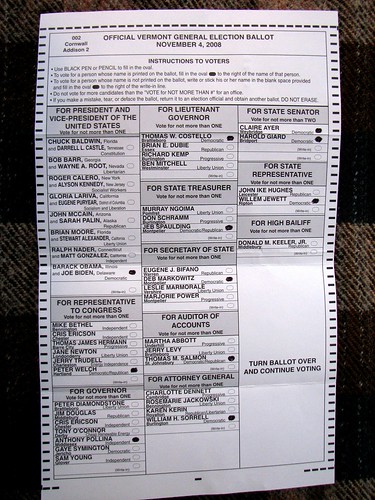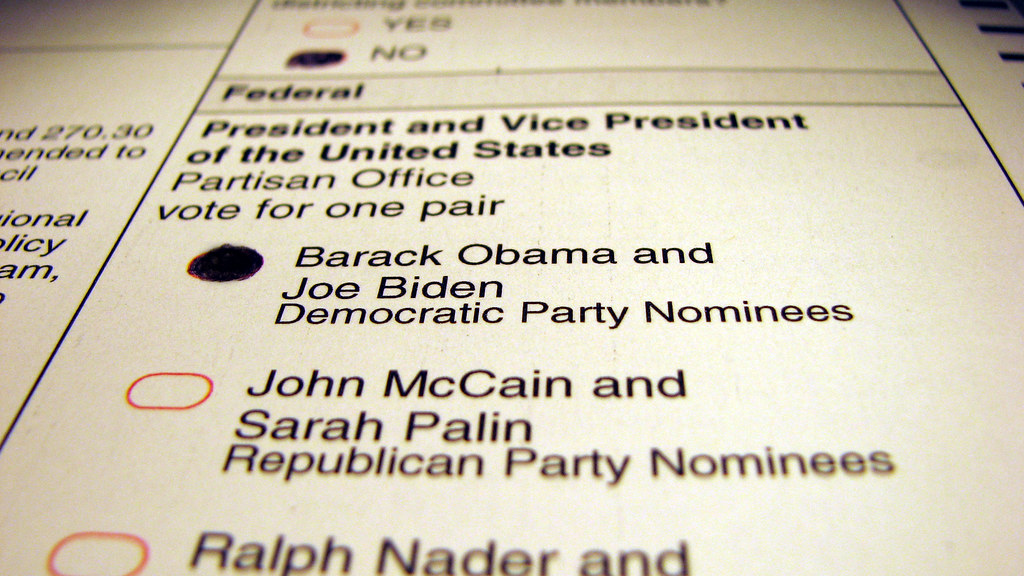The Aftermath
/Now that the endorphins from last night has somewhat worn off, I had a couple of thoughts about the election that has completely consumed the news and minds of the entire country. It has been an exhilarating, interesting and ridiculous two years of campaigning, and I for one, am both happy with the end result and that it is now over - for now.
The first and foremost thing that I am the happiest with is the sheer heroic nature of this election on numerous levels. America, a country long seen by the world in the light of its history with African/Colored Americans. This, in my mind, is the complete realization of the entire Civil Rights movement, and I was astounded at the landslide in the electoral college last night when President-Elect Obama took the election at a huge margin. This to me speaks to the distance that the American people has come, and while it is not a complete journey yet, it is something to be vastly proud of.
That being said, I was extremely disturbed by the comments of a number of people throughout the election. The past eight years seems to have reinforced a sheer willful ignorance on the part of the American people, and this was no exception. The shouts of Senator McCain supporters during his rallies and my fellow Norwich Students, of Kill Him! Hang Him! was very troubling and it shows that there are still deep divisions within the country. To his credit, Sen. McCain did his part to silence this, but nowhere nearly as effective as Pres-Elect Obama did during his rallies at cries directed at Sen. McCain during his campaign.
This was a huge element that I didn't like - it drudged up a lot of unpleasantness and as in any campaign, there was a lot of mis-direction on the part of both parties. In particular, I took issue with the charge that Sen. McCain was going to be a second President George Bush and that President Elect Obama was essentially a socialist.
Sen McCain isn't and wouldn't be a second President Bush. I suspect that he would have made a fine President, certainly better than our current one, because of his long experience in the Senate, and because of the nature to which he has worked. The election spinsters did an effective job of turning him into a much further right-winged politician, when he's shown himself to be a more moderate one at times. I don't think that I would have liked how he handled the war, or how he would have approached the financial crisis, but I would suspect that he would have maintains the status quo to some degree. Perhaps even made things better, if gradually. Most troubling was his selection of Gov. Sarah Palin, whom I saw as both a loose cannon, and someone far more unprepared for the office of the President if need be. Her selection showed that Sen. McCain was far more reactive than Obama, which is something that I don't think is healthy with that amount of power.
To the allegations that P/E Obama is a socialist - I disagree, and this is something that has been both spun out of control by the media and the popular labeling of people like 'Joe the Plumber'. P/E Obama's plan to raise taxes on a percentage of the population is a very small one - 4%, which isn't nearly the same thing as advocating state ownership or takeover of production, something that is never going to happen. While I think that raising taxes isn't going to be popular with those being taxed, I think that it would have a chance of working. I was somewhat disturbed to see the number of people who just took this campaign line at face value, with little thought or critical thinking about how this would play out. The Obama administration will still have to work with Congress and the American people to enact his plans.
As far as foreign policy and experience goes, I think my boss hit the nail on the head - The current administration was composed of a lot of experienced people, and look where that got us. We have squandered a national surplus, wracked up enormous amounts of debt and have fallen out of favor with the world because of our actions overseas, and particularly Guantanamo Bay. That being said, while experience is necessary, P/E Obama has an experienced VP in Sen. Joe Biden, as well as numerous qualified people around him as advisers. This is where the media should have been looking far more closely, because this really is where any president gains their policies from.
The Media has been a real mess and problem throughout the entire election cycle, and I'm very glad that I got rid of my cable in the past couple of months. There are far too many political hacks, who are blatantly partisan, who don't ask the questions that need to be asked, and merely perpetuate what each party was saying, but not what they were doing. Of all the political correspondents that I followed, John Stewart of the Daily Show was the only one who was really worth watching and listening to.
Overall, I felt that P/E Obama's campaign was far better than Sen. McCain's, right down to basic themes. The Obama Campaign was far more positive, held itself to a much higher level and held a candidate that was calm, collected and respectful. The McCain campaign, on the other hand, seemed to spend far more time attacking P/E Obama as a person, politician and a candidate and was far better at trying to instill fear into voters. While I don't see McCain as a main perpetrator of this, he's ultimately campaigning on that sort of thing.
All in all, this has been a fairly positive experience for the United States. It revealed many problems that are still underlying throughout the country, but despite these problems, we were able to elect a candidate that has fairly broad, but not universal, support, one who initially campaigned on education, and someone whom the world sees as a positive leader. While change is not going to come overnight, or most likely in this first term, it is a very important start for our generation, and it is something that I was immensely proud to have witnessed and participated in.
And of course, I was really impressed with the 'hologram' technology that CNN unveiled last night. Does anybody know - was that a true hologram, or just a computer projection worked into the broadcast? If anything, it was really impressive!


 Not mine, but what I used
Not mine, but what I used
